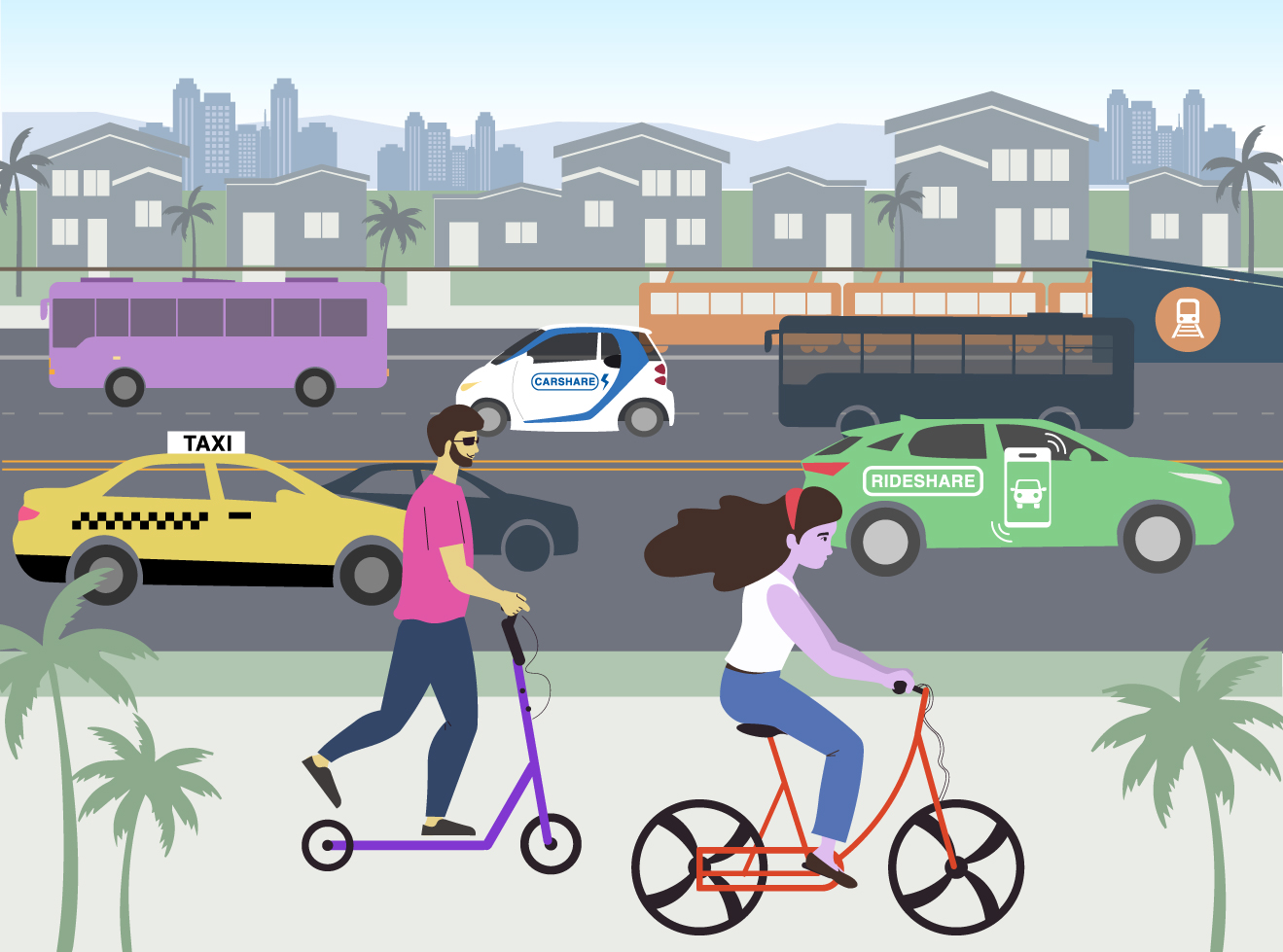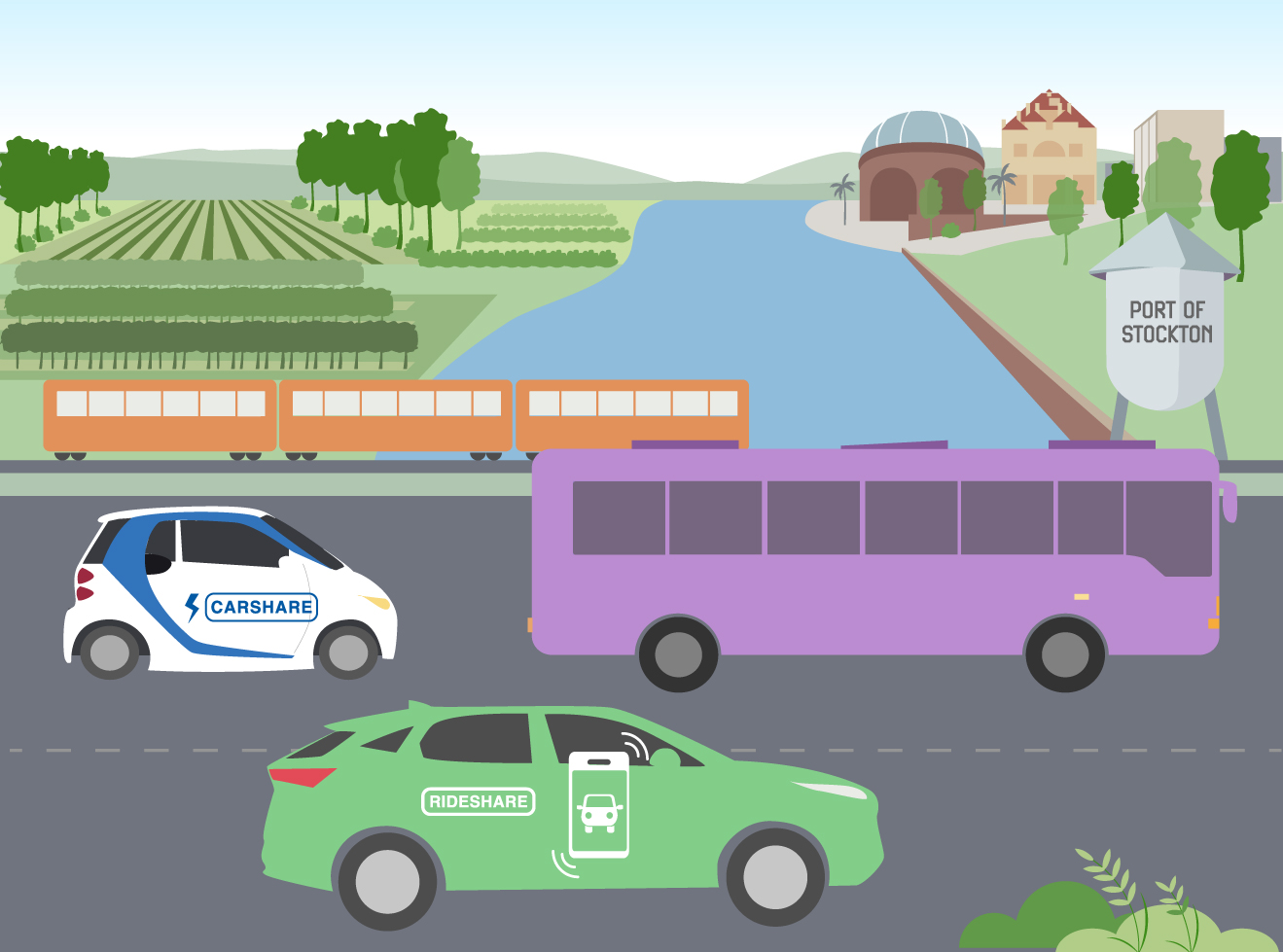Oakland's Universal Mobility Pilot

Home to over 430,000 people, Oakland is located in Alameda County, in the East Bay area of the California San Francisco Bay Area. Oakland has an extremely high cost of living. The median household income is just over $80,000 and about 15% of the population is living in poverty, according to US Census data. The City of Oakland Department of Transportation (DOT) targeted East Oakland for their Universal Basic Mobility Pilot. East Oakland is part of the “flatlands” of Oakland, surrounded by affluent hillside neighborhoods but characterized by social and economic hardship, with a large population of undocumented immigrants. East Oakland is also considered a food desert, with a low ratio of grocery stores to residents.
The UBM pilot was funded by a grant from Alameda County Transportation Commission. Oakland DOT recruited residents within a 1/4-mile radius of a new Bus Rapid Transit corridor east of Lake Merritt Bay Area Rapid Transit rail station. They partnered with community-based organizations, tabled at transit stations and events in the area, and mailed out flyers to local businesses and residences. Prospective participants were directed to the program website to fill out an application which contained a survey and was available in English, Spanish, Chinese, Vietnamese, and Arabic. The City received over 1,000 applicants and used random stratified sampling to select 500 recipients to represent the area geographically and in terms of race/ethnicity.
Participants were provided with a prepaid card with two installments of $150. The prepaid cards worked like a debit or credit card but could only be used to buy passes or trips on public transit (rail, buses, ferries), carshare, shared docked or dockless bikes, e-bikes and e-scooters.
Find out more about other pilots:



